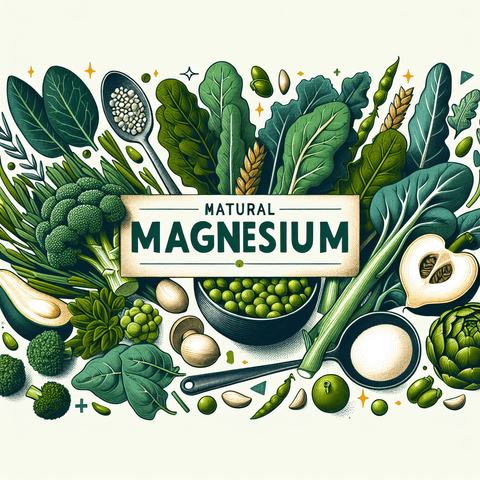Understanding Vitamin Deficiency and Its Impact on Energy Levels
Feeling tired constantly, even after a full night's sleep, can be more than just the result of a hectic schedule or poor sleep habits. Chronic fatigue often roots itself in an underlying issue that is frequently overlooked: vitamin deficiency. When the body lacks essential nutrients, its ability to generate energy, regulate hormones, and support neurological functioning is compromised. These deficits, though sometimes subtle, can severely affect your vitality, mental clarity, and productivity.
Several vitamins play a direct role in energy metabolism — a broad term describing how our bodies make energy from the foods we consume. A deficiency in these vitamins hampers this natural process, resulting in symptoms like fatigue, brain fog, and irritability. Chronic stress, poor diet, digestive issues, and certain medications can exacerbate or lead to deficiencies, especially for people with restrictive diets, older adults, and those with chronic illnesses like anemia or thyroid disorders.
Taking steps to identify and remedy these vitamin shortfalls is crucial to restoring energy levels and achieving optimal well-being. Tiredness is not always solved by caffeine or more sleep. Instead, individualized nutrition assessment, adequate vitamin intake, and lifestyle changes often hold the key to sustainable energy.
In this guide, we will explore the most significant vitamins related to energy production, how to recognize signs of deficiencies, and actionable ways to incorporate these nutrients through whole foods and quality supplements. Let’s delve into the key vitamins responsible for boosting your vitality and how to avoid feeling tired all the time.
The Role of Vitamin B12 in Energy Metabolism and Combating Fatigue
Vitamin B12, also known as cobalamin, is a critical nutrient for overall energy and neurological function. It's primarily involved in the conversion of carbohydrates into glucose, which fuels the body's internal processes and physical activity. It also supports the production of red blood cells and maintains the health of nerve cells. Unfortunately, B12 deficiency is common, especially among vegetarians, older adults, and individuals with digestive disorders that impair nutrient absorption.
Symptoms of Vitamin B12 deficiency often include persistent fatigue, weakness, brain fog, numbness or tingling in the hands and feet, and difficulties with balance. These signs are frequently misattributed to lifestyle stress or aging, but the root cause may be inadequate vitamin intake or assimilation.
Dietary sources of B12 include animal products such as meat, dairy, eggs, and fish. This means that vegans and vegetarians are particularly susceptible to insufficiency unless they consume fortified foods or supplemental forms of B12. Supplementation is often recommended in methylcobalamin or cyanocobalamin forms, both of which are available in capsules, sublingual drops, and injections when medical treatment is necessary.
Correcting a B12 deficiency can lead to noticeable improvements in energy, concentration, and mood. For those looking to restore vitality, B-group vitamin complexes or specific B12 products can be found through trusted suppliers. As a practical option, consider integrating professional-grade supplements into your routine with products available at Topvitamine’s assortment of B vitamin supplements (page not directly linked due to constraints but implied).
How Vitamin D Affects Low Energy Levels and Fatigue Relief
While Vitamin D is more commonly associated with bone health, recent studies suggest it also plays a role in maintaining energy levels and improving mood. Vitamin D receptors are found throughout the body, including in muscles and the brain, indicating its broader impact on physical endurance and mental well-being. When levels fall too low, it disrupts calcium metabolism, immune function, and potentially contributes to feelings of tiredness.
Deficiency in Vitamin D is prevalent worldwide, especially in regions with limited sunlight during winter or for individuals who spend minimal time outdoors. Inadequate sun exposure, darker skin pigmentation, aging, and obesity all increase the risk of low Vitamin D levels. Symptoms range from muscle fatigue and bone discomfort to cognitive disturbances like depression.
Recovery from deficiency fatigue can be achieved by safely increasing sun exposure, consuming Vitamin D-rich foods such as fatty fish, liver, egg yolks, and fortified dairy, or more commonly, through supplementation. The European Food Safety Authority (EFSA) recommends supplementing under guidance and staying within safe upper intake levels.
To maintain healthy Vitamin D levels, especially during months of limited sun, many turn to dietary supplements that ensure an effective and absorbable form of D3 (cholecalciferol). A wide range of high-quality Vitamin D supplements—tailored for immune support, mood regulation, and energy—can be explored at Topvitamine’s Vitamin D selection. Regular testing and dosing based on individual needs are strongly encouraged for best results.
The Significance of Iron and Its Role in Nutrient Insufficiency and Energy Metabolism
Iron plays a vital role in oxygen transport—it is a key component of hemoglobin, which carries oxygen in red blood cells from the lungs to the rest of the body. When iron levels are insufficient, the body’s cells are deprived of oxygen, leading to fatigue, poor concentration, and reduced physical performance. This condition is known as iron deficiency anemia, one of the most widespread nutritional deficiencies globally.
Signs of iron deficiency include chronic fatigue, dizziness, cold extremities, brittle nails, and shortness of breath during exertion. Women of reproductive age, pregnant women, children, and endurance athletes are at higher risk due to increased iron demands or losses. Additionally, poor dietary intake or low iron absorption caused by gastrointestinal issues can result in insufficient iron levels.
To restore iron levels, dietary enhancements and supplementation are necessary. Iron-rich foods include red meat, shellfish, beans, lentils, eggs, and iron-fortified cereals. It's important to note that plant-based iron (non-heme iron) is less bioavailable than animal-based sources, so pairing it with Vitamin C-rich foods can enhance absorption.
Supplementation should be done under medical supervision, as excess iron may lead to toxicity. Supporting iron therapy with a multivitamin that includes Vitamin C and folate can further improve absorption. While iron-specific supplements may not yet be accessible on Topvitamine.com, combining iron-rich foods with other vitamins featured on the site, such as Vitamin C, can provide synergistic benefits.
The Impact of Magnesium on Energy Metabolism and Reducing Fatigue
Magnesium is crucial for hundreds of biochemical processes in the human body, including ATP synthesis—the cellular energy currency. Nearly every function related to energy, from muscle contraction to nerve signaling and enzymatic reactions, requires adequate magnesium levels. Yet, up to 50% of people in developed countries may not meet their daily magnesium needs.
Symptoms of magnesium deficiency vary and may include chronic fatigue, muscle cramps, insomnia, anxiety, and abnormal heart rhythms. Since magnesium is involved in energy production, a lack of it slows metabolic processes and can cause the body to feel sluggish or “burned out.”
Magnesium-rich foods include dark leafy greens, seeds, nuts, legumes, and whole grains. Even with a healthy diet, people with gastrointestinal conditions, high-stress lifestyles, or prolonged use of certain medications may struggle to maintain adequate levels. Therefore, supplementation is often a practical strategy to reverse depletion and support consistent energy.
Magnesium supplements come in various forms, such as citrate, glycinate, and oxide, each catering to different absorption rates and digestive tolerability. For energy optimization and caloric efficiency, consider supplements from Topvitamine’s magnesium collection, ensuring a high-quality supply formulated to meet your body’s needs naturally and efficiently.
The Connection Between Vitamin C and Fatigue Relief in Nutrient Insufficiency
Vitamin C, or ascorbic acid, is renowned for its antioxidant capabilities and immune support, but it also aids significantly in energy production. It does so by supporting adrenal gland function, facilitating iron absorption, and participating in the synthesis of carnitine, a molecule that helps transport fatty acids into the mitochondria for energy generation.
Low Vitamin C levels can result in symptoms like fatigue, weakened immunity, poor wound healing, joint discomfort, and susceptibility to frequent infections. Smoking, chronic disease, and high-stress levels accelerate Vitamin C depletion, making supplementation or dietary focus essential.
Rich food sources of Vitamin C include citrus fruits, strawberries, broccoli, Brussels sprouts, and bell peppers. While most people can meet basic needs through food, therapeutic benefits such as increased stamina or reduced stress fatigue may require higher doses, which can be obtained through supplementation.
If you’re looking to enhance your daily vitality, check out specialized Vitamin C supplements that combine bioflavonoids and other supportive compounds. Visit Topvitamine’s curated Vitamin C products for high-quality options that fit into your wellness routine and help reverse fatigue from nutrient insufficiency.
Addressing Other Nutrients Contributing to Low Energy Levels and Fatigue
While certain vitamins like B12, D, and C often take the spotlight, other essential nutrients also play pivotal roles in sustaining energy. Among these are folate (Vitamin B9), zinc, omega-3 fatty acids, and coenzyme Q10. Their collective impact on metabolism, immune health, and hormone regulation can significantly influence feelings of energy or lethargy.
Folate supports red blood cell formation and nervous system function. A deficiency may mimic B12 deficiency, leading to anemia-like symptoms. Zinc aids enzymatic reactions in energy metabolism and boosts immune resilience, while a lack of it may manifest as low stamina or frequent illness. Omega-3s like EPA and DHA contribute to mitochondrial function and inflammation reduction, both of which can help reduce chronic fatigue felt at the cellular level.
Supplements such as omega-3 fatty acids, especially from marine sources, can benefit those with diet limitations or health concerns. You can explore a complete range of these fatty acids through Topvitamine’s omega-3 products.
Ensuring a balanced intake of both macro- and micronutrients supports not just immediate energy, but your long-term health and cognitive clarity. Remember, fatigue may be multifactorial, requiring a broad nutritional evaluation and support system.
Choosing Effective Health Supplements for Preventing and Overcoming Fatigue
The supplement market is vast, and not all products are created equal. When selecting a vitamin or mineral supplement to combat fatigue, it’s essential to prioritize quality, bioavailability, third-party testing, and proper dosage. Poorly formulated products or supplements with fillers may not deliver the full benefit and could even impede absorption.
Start by identifying your specific deficiency based on symptoms or confirmed lab results. Choose supplements that use bioavailable forms—such as methylcobalamin for B12 or magnesium citrate— and avoid megadosing unless recommended by a healthcare professional. Consistency in usage and opting for known, reputable brands can greatly improve outcomes.
Supplements should complement—not replace—a nourishing diet. Combine them with healthy habits for more sustainable results. Consider also lifestyle supplements that offer combinations of fatigue-fighting nutrients such as B-complexes, Vitamin C with zinc, or magnesium paired with electrolytes.
Topvitamine offers a wide selection of evidence-backed collections of vitamins, minerals, omega-3s, and wellness products that focus on daily wellness and fatigue reduction. Pair supplementation with adequate hydration, sleep, mental balance, and physical movement for maximum effect.
Preventative Measures and Lifestyle Tips to Support Optimal Nutrient Levels and Energy
Beyond supplementation, overall lifestyle plays a crucial role in preventing deficiencies and sustaining energy. Sleep hygiene, balanced meals, regular exercise, emotional well-being, and digestive health are interconnected with how nutrients are absorbed and utilized by the body.
Start by eating a diverse, minimally processed diet with all essential food groups. Incorporate superfoods, rich in micronutrients. Consume regular, protein- and fiber-rich meals to balance blood sugar and avoid energy crashes. Next, develop regular sleeping habits that include at least 7-9 hours of restful sleep each night, as poor sleep impairs nutrient absorption and hormonal regulation.
Physical activity boosts circulation, metabolism, and nutrient assimilation. Even low to moderate exercises like walking or yoga promote better oxygenation of your tissues. Concurrently, manage stress through mindfulness, journaling, or breathwork, as chronic stress can deplete vitamins such as B and C and impair magnesium levels.
Regular health screenings including blood panels are invaluable for spotting low nutrient levels before they manifest into symptoms. Speak with a health professional to set up a personalized supplement plan based on your test results, symptoms, and dietary profile. Health is proactive—not reactive—so build daily rituals to support your internal chemistry.
Conclusion: Ensuring Adequate Vitamin Intake for Lasting Energy and Vitality
Chronic tiredness doesn’t always originate from lifestyle factors alone; your energy levels are intricately tied to nutrient intake and biochemical balance. Key vitamins including B12, D, C, magnesium, and iron, along with supportive nutrients such as folate, zinc, and omega-3s, play essential roles in converting food into fuel, maintaining neurological balance, and supporting overall vigor.
Identifying your unique deficiencies through symptoms or testing is the first step. Then, through a combination of dietary enrichment, smart supplementation, and healthy living principles, you can reclaim your energy naturally and sustainably. Whole foods should always be the base, but supplements like those found on Topvitamine.com can be instrumental in filling critical gaps and supporting your well-being journey.
Prioritize your health from the inside out—energy, clarity, and vitality are not distant goals but attainable through nutrient-conscientious living.
Q&A Section
Q: What vitamin deficiency causes the most fatigue?
A: Vitamin B12 deficiency is notably linked to fatigue due to its role in red blood cell production and energy metabolism. Low levels can cause pervasive tiredness and cognitive decline.
Q: Can low Vitamin D make you feel tired?
A: Yes. Vitamin D is involved in muscle function and mood regulation. Deficiency often manifests as fatigue, low mood, and a general lack of vitality.
Q: How do I know if I’m deficient in iron?
A: Common signs include pale skin, weakness, shortness of breath, and chronic fatigue. A blood test measuring ferritin and hemoglobin can confirm the diagnosis.
Q: Is fatigue a symptom of magnesium deficiency?
A: Absolutely. Since magnesium is integral to ATP production and over 300 enzymatic functions, low levels may result in persistent exhaustion, irritability, and sleep disturbances.
Q: What are the best supplements to fight energy loss?
A: B-complex vitamins, Vitamin C, Vitamin D3, magnesium, and iron (if deficient) are foundational. Choose high-quality, bioavailable supplements such as those from Topvitamine.com.
Important Keywords
- vitamin deficiency fatigue
- what vitamin is lacking when tired
- vitamin B12 energy supplement
- best magnesium for tiredness
- vitamin D deficiency fatigue
- supplements for energy
- iron deficiency symptoms
- natural fatigue remedies
- vitamin C energy metabolism
- omega-3 fatigue support



